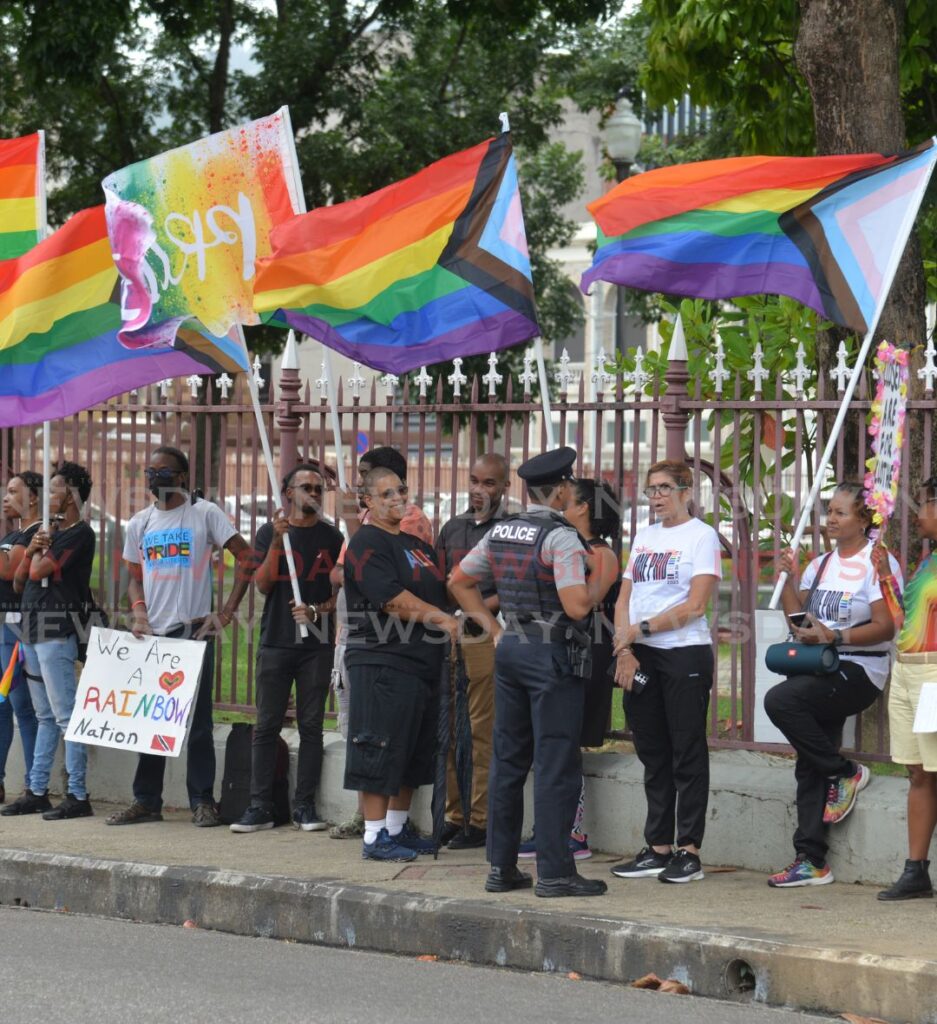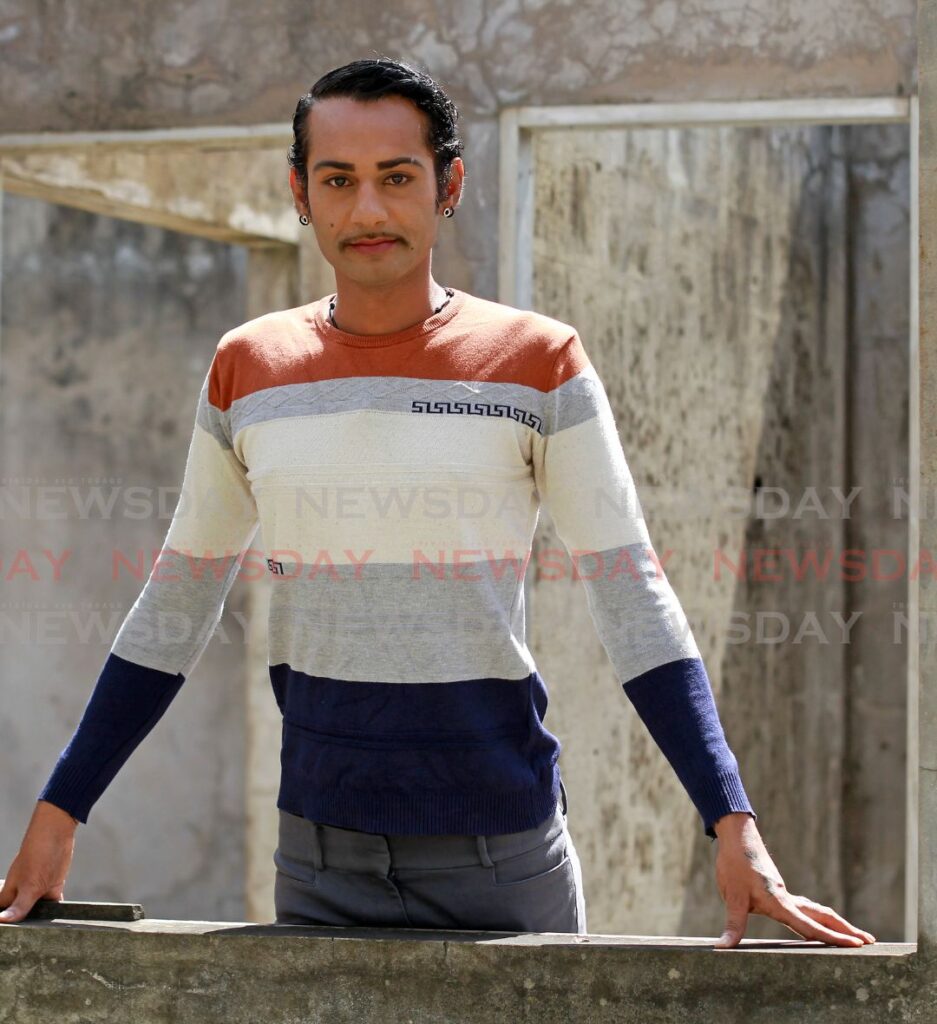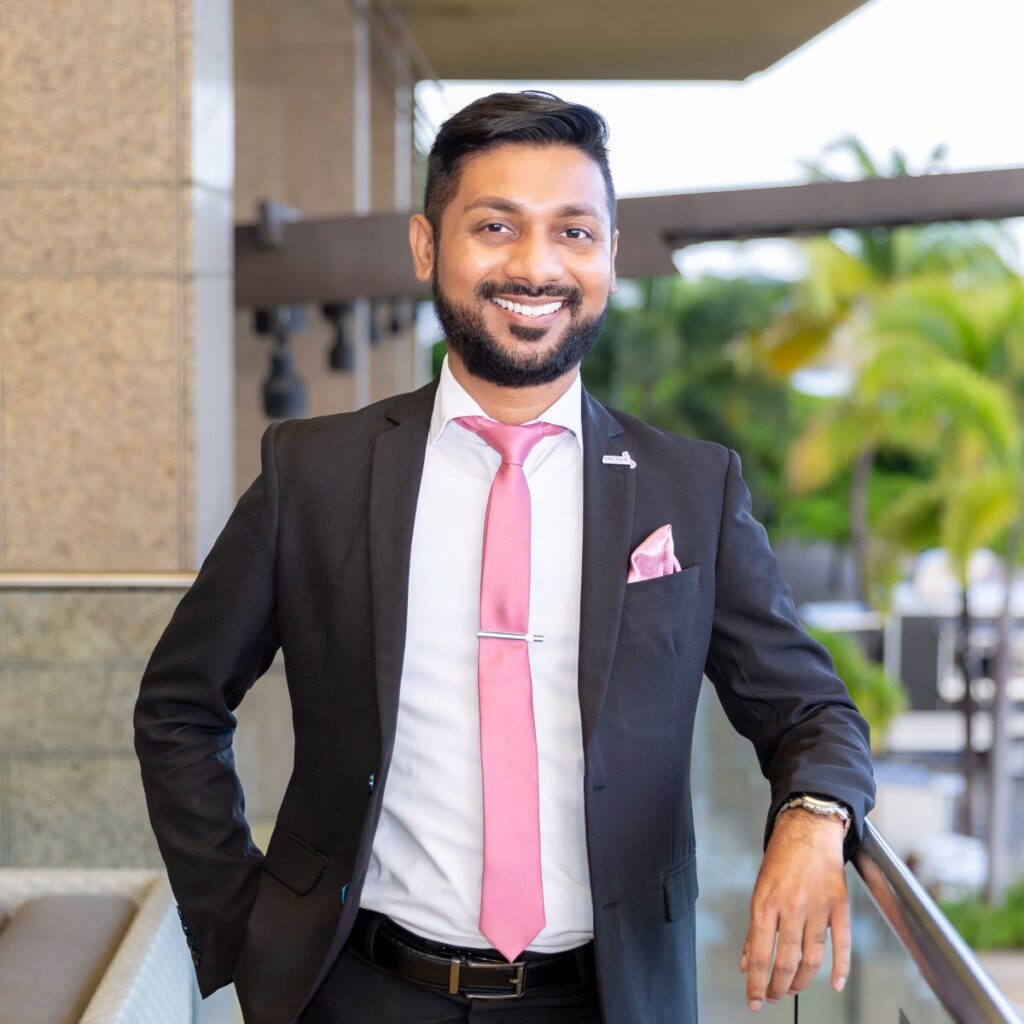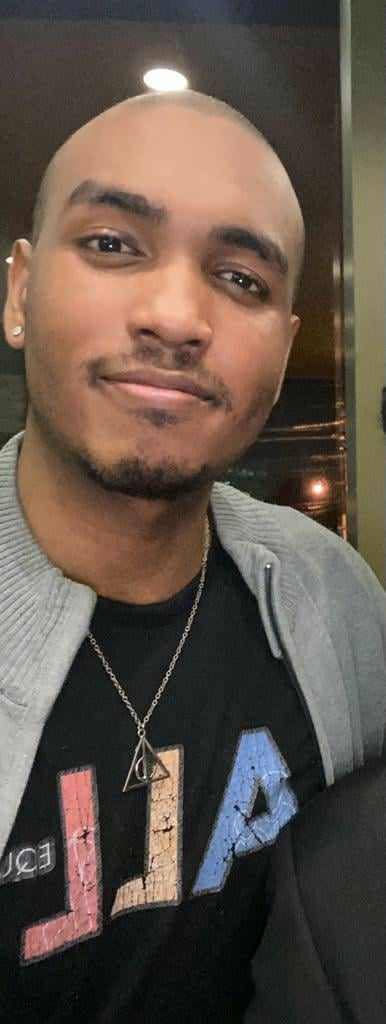Glad to be gay

People’s exposure to the LGBT+ community, partly through cable TV and the internet, has brought a general level of understanding to TT’s population of LGBT issues over the past decade or so.
The younger generation seems even more accepting, letting people live their lives without interference and even becoming allies to the community.
However, that general understanding and perhaps tolerance do not always equate to acceptance when those issues hit close to home, when they involve family members, friends, schoolmates or work colleagues. This may especially be the case when prejudices have been passed down through generations or through religious leaders.
These prejudices have affected the lives of many of those in the LGBT community in one way or another – physically, mentally, and emotionally – to varying degrees.
Sunday Newsday spoke to three openly gay men to learn of their experiences and to ask if they have seen a general change in attitudes towards themselves and fellow members of the community over the years.
‘More people need to just mind their business:'

Originally from Preysal, Ackeem Mohammed, 33, said he never had to “come out” as gay. He said even as a child he had effeminate mannerisms, a “feminine body type,” an affected speech pattern – and loved dancing, which he has been doing since he was five.
He said he was ridiculed for these things from a young age, and excluded from many activities by members of his age group. But he was never interested in sports or science, and so found alternatives in which he would be included, like dance and music.
“It took me a little while, but it was something I had to come to terms with, on my own. “I did not have the option of looking different or coming out. I literally came out of my mother this way.”
He performed with dance companies and in many competitions, including Best Village and bmobile’s Dance Off, and was a gym instructor, using dance as exercise.
But he recalled there was a lot of tension in his home growing up with his grandfather and aunt because of his perceived sexuality. And some family members did not talk to him. He also had to cope with being sexually assaulted without the support of his family or peers. He used dance to help with his emotional trauma.
He also had to deal with other people’s preconceptions and prejudices, and faced a lot of discrimination.
“Because I look feminine, some men feel I want to be with everybody. I believe they felt threatened, like if they were around me, they would turn gay, I don’t know. Or they think that gay people can’t get a partner and we don’t have a type, so we would want them.
“But just as straight people like a certain type of person, or have people they would not be interested in at all, we are the same way.”
As he got older, in some spaces, people would be rude to him or make comments about him. Sometimes it affected his earning opportunities: one person told him the only way they would employ him was if he “turned down all of that.”
When he was younger, for his own safety and security, Mohammed had to adjust his behaviour to seem more masculine, but it was a difficult balance for him as a dancer. He had to try to figure out how to pretend to be a straight male dancer, even though artists and creative people were more accepting of the lifestyle.
He stressed that he comes from a generation where, as a gay man, survival was paramount, as he had friends who were physically attacked for being gay. So he hid who he was for a while. For a time, he had a “girlfriend” – his best friend, who was a lesbian. He was careful about the way he walked, he did not wear make-up and generally tried to be as masculine as possible.
“At the end of the day, people are going watch you and judge you without knowing anything about you anyway.
“But I believe TT has come a long, long way from when I was growing up. Now it’s the new trending thing, so most people are okay with it. Men are doing facials and getting manicures and finding their feminine energy, but they are straight. Because of that, we (gay men) are now fitting in a bit in society. “But there are still people who do not fit in, and there are still areas that LGBT people are not really comfortable.”
Mohammed is an activist for the TT Trans Coalition, because he feels that group needs the most support at the moment, especially when it comes to health care.
He said the hormones some transgender people would like to use as part of the process of changing gender were the same hormones given to heterosexuals who have high oestrogen or testosterone levels. He compared taking hormones to cosmetic surgery, and believes as long as they are legally adults, the government should support transgender people’s use of gender hormone therapy.
He added that he wished he had known when he was growing up about intersex people – those born with reproductive or sexual anatomy issues relating to chromosomes, gonads, sex hormones, or genitals that do not fit the typical definitions of female or male.
Although he was never medically diagnosed, he believes he was in that category and that knowing that would have helped him accept himself and given him peace as youth.
With four younger siblings and no parents to help, Mohammed had to “flip” between typical male and female gender roles to care for them.
Asked what he defined himself as, he replied, “I consider myself to be human.
“I don’t use labels. I believe the only things that should have labels have price tags, and I don’t have a price tag on me. I don’t want anyone to hesitate to reach out to me because of some label, because everybody needs help, especially when they are different.
“More people in the general population need to just mind their business, focus on what they have to do, and leave me alone to focus on what I have to do. That way everybody will get everything done. It doesn’t matter what I or anybody else looks like.”
Change, but no deep sense of security yet:

Kennedy Maraj, 39, came out to his friends around 18 and to his parents in his mid-30s. When he did, he said, his parents asked stereotypical questions, and initially he thought it would change his family dynamic, but they were able to have an adult conversation.
“Waiting that long, while it did cause a lot of strife and frustration and depression at times, it turned out to be the best thing, because (otherwise) I don’t know if my parents would have been as accepting as they were.
“It wasn’t a parent trying to tell a child, ‘This is not who you are,’ and ‘I’m going to make you who I think you should be.’ It wasn’t one of those situations. It was a rather frank, open discussion.
“They had a lot of concerns, things that they weren’t sure about, and my parents were very open and receptive to educating themselves around this issue.”
He said he was bullied at school because he was quiet and interested in books rather than sports. And he kept his sexuality from his family and friends because he had many fears and anxieties about his parents’ acceptance and the kind of life he might have as a result of homophobia and discrimination.
But now he says, “As much as it offered me a sense of safety, being in the closet was my greatest hindrance. As long as I wasn’t saying, ‘I am gay’ to anyone, I could hide and stay relatively safe.
“But…doing that it prevented me from being my full, true, authentic self.”
He said after he came out to his parents, his entire world changed overnight. He could say what was on his mind and express himself fully, he was not worried someone would say something to his family to out him, and he felt like a stronger, confident, braver person.
Yet in the back of his mind, there is always a fear of being beaten or killed. He said he knew there were certain parts of the country or spaces he could not go without being threatened or hurt. Sometimes people look at him differently because he is gay, and he has to work harder than other people for others to see him as anything more than a gay man.
He said discrimination is always there, a part of his life. In the past he has had managers and coworkers who were homophobic, so there was always tension between them. Some said they accepted him, but would make comments behind his back, imply he should leave “that part of himself” outside the workplace, and while they would speak about their own romantic relationships, they refused to hear about his.
At his current workplace at a business chamber, he has a sense of security and acceptance, but he said as a gay man, he feels as if it could be taken away from him at any moment.
He is constantly policing his body and expressions when it comes to gender norms because people do not like any deviation. And before it became stylish, people would take issue with his wearing a pink tie, crossing his legs or anything that was not considered “masculine.”
However, he said there has been a change in TT society’s view of LGBT people, with many more people being open-minded and understanding, if not accepting.
“I do think there is a change. The fact that I am talking to you, a reporter, as an openly gay man is something my 16- or 25-year-old self could not have envisioned.”
As a youth he thought being gay in TT meant denying that part of himself to his deathbed. He believed his only options were to pretend to be straight, get married and have children, or never get married and live “a lonely, painfully single” life.
Now he can openly be in a relationship and envisions himself marrying a man in the future if he meets the right person.
“Even though I went through all of this and continue to face a lot, it is getting better and I do feel positive, like it will continue to improve.” But there can be setbacks.
He said before the incident involving RIK bookstores, when people protested over the chain stocking LGBT-friendly books geared towards children, he would have believed that change was drastic and permanent. But it has made him feel homophobia was always in the background of society.
“I think what happened a few weeks ago (with RIK) was a classic example of safety being relative, (because of) the fact that so many people in this country were so open and brave enough to express what I perceive to be homophobia or homophobic thoughts and opinions on a simple book and mask it under protecting children.
“That was something that made me realise, you know what? You’re never safe. Safe is a relative concept if you are an LGBT person in this country, or anywhere around the world for that matter.”
He said, as far as he knew, in TT, LGBT people were not pushing any agenda. They only wanted to be seen as human beings and to have the same level of rights and acceptance as anyone else. They were not forcing their lifestyle on anyone.
Homophobia damaging TT’s future:

Josh Ryan, 27, who is in the process of finishing a masters in law at the University of Wolverhampton in the UK, said he remembers feeling “different” since kindergarten, but at that age he could not put words to what he was feeling. It was when he went to Hillview College at 11 and developed a crush on a boy that he began trying to figure out his feelings. He said his mother was a teacher, so if he could not figure something out himself, he looked to books or the internet. So he went online to find out what it meant that he felt this way about another boy. What he found was exactly what he felt, and he realised he was gay.
“I grappled with that for a while, because my mom is Christian, and I grew up in the church as well. I was in the church band and was generally very involved. I would hear all the messages about sex being ordained by God and for procreation, and anything that deviated from that was of the devil and a sin. Even at that age, though I didn’t necessarily fully understand what was being said, it stuck with me.
“But it didn’t take long for me to realise I can’t change it, and it was not something I should be ashamed of, or that is wrong.”
Although terrified of their response, he came out to his best friends at 13 over Facebook Messenger. They were unsurprised – and told him everyone already knew, as he was, and still is, soft-spoken, with a musical cadence to his voice, and a gentle personality. At 15, he told his mother and, although they had a “heated discussion” about it, she soon accepted him for who he was.
“It’s so funny, because people already have their impressions of your sexuality before you even realise. You even hear adults making comments about children like, ‘That one might grow up gay. Look at how he behaving. You have to watch that.’
“So they know it’s innate to us, that we’re like that from birth – but for some reason they can’t recognise it’s a natural part of us, because they see heterosexuality as the default, and anything else is ‘perversion.’”
But Ryan said he never felt the need to hide who he was or change his behaviour or personality to suit anyone, even though strangers would sometimes call him names. In fact, he said his personality and being open about his sexuality opened doors for him, and he did not have to be crude or hyper-masculine.
“I was very popular in my friend groups. I got very close to a lot of people in different age ranges very quickly. Being open and upfront has really helped establish the life I have now. I was able to make friends with a lot of great people who have helped me through life.
“Even in my profession I met people who were willing to guide me solely because I was a sensitive gay boy who cared about certain issues.”
Although his experience living in Maraval and Woodbrook was relatively positive, he worked with Pride TT in the past and he knows of people who lived in “rough” areas who had to hide their sexual orientation for fear of physical violence. Some people were run out of their communities, suffered abuse or were kicked out of their homes.
He believed people’s attitude towards the LGBT community started to soften after the 2018 Jason Jones ruling that upheld Jones’s challenge to the law criminalising sex between consenting adult men, the resulting Pride campaigns, subsequent Pride parades, and the media exposure that brought more tolerance rather than acceptance.
However, Ryan believed that change took place mostly in Port of Spain and “the west,” and only on the surface, as there were still many reports of discrimination and of gay youths being kicked out of their homes.
“I think what is happening now, in 2023, is the right-wing Christians in North America and other European countries are using sexuality as a political point, especially because religion is trending down. So we are seeing a resurgence of mass homophobia.
“And here, that RIK thing. We haven’t seen that kind of fanfare online in TT about homosexuality, that kind of vitriol being spewed, in a long time. We saw blanket hate towards everybody in the community.”
He said it highlighted that some people’s attitudes were still stuck in an ignorant state.
Ryan added that those attitudes had an impact on TT’s future, the economy and development: at least 50 of his LGBT friends have left TT permanently because of what they felt was the country’s perspective on their sexuality. They wanted to be free to be themselves, have the relationships they wanted, and not hide, and did not believe they could get that acceptance in their home country.


Comments
"Glad to be gay"